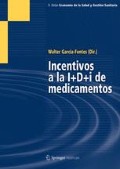Resumen
Las patentes han demostrado ser un mecanismo excepcionalmente eficaz para motivar la innovación. Una patente da a una empresa el derecho a acudir a los tribunales para exigir los derechos exclusivos sobre el invento patentado durante un periodo de tiempo establecido. El punto fuerte específico del sistema es que las patentes ofrecen una recompensa que está correlacionada con el valor que los consumidores obtienen del producto. Las empresas toman decisiones de inversión en innovación basándose en su propia información sobre la probabilidad de éxito y sobre los costes de investigación, así como sobre el valor esperado de la patente. El problema que se aborda en este artículo es el de las situaciones en las que, por alguna razón, el valor de la recompensa que proporciona la patente es relativamente bajo en comparación con el valor social que crea la innovación: es decir, cuando la apropiabilidad del valor social es baja. En esos casos, las empresas no invertirán en innovación aun cuando el valor de esta para la sociedad sea elevado.
Access this chapter
Tax calculation will be finalised at checkout
Purchases are for personal use only
Preview
Unable to display preview. Download preview PDF.
Bibliografía
Abramowicz M. Perfecting patent prizes. Vanderbilt Law Review. 2003;56(1):114–236.
Cohen W, Nelson R, Walsh J. Protecting their intellectual assets: appropriability conditions and why U.S. manufacturing firms patent (or not). NBER WP. 2000;7552.
Eisenberg R. Lecture: Patents, Product Exclusivity, and Information Dissemination: How Law Directs Biopharmaceutical Research and Development. Fordham Law Review. 2003–4;72:477.
Flynn S, Hollis A, Palmedo M. An Economic Justification for Open Access to Essential Medicine Patents in Developing Countries. J Law Med Ethics. 2009;37(2):184–208.
Garnier JP. Rebuilding the R&D Engine in Big Pharma. Harvard Bus Rev. 2008;86(5):68–76.
Hollis A, Pogge T. The Health Impact Fund: Making New Medicines Accessible for All. Incentives for Global Health. 2008. New York.
Hollis A. Incentive Mechanisms for Innovation. University of Calgary: IAPR Technical Paper TP-07005; 2007.
Lichtenberg F, Philipson T. The dual effects of intellectual property regulations: within-and betweenpatent competition in the U.S. pharmaceuticals industry. J Law Econ. 2002;XLV:643–72.
Love J, Hubbard T. The Big Idea: Prizes to Stimulate R&D for New Medicines. Chic Kent Law Rev. 2007;82(3):1519–54.
Moran M, Guzman J, Ropars AL, Illmer A. The role of Product Development Partnerships in research and development for neglected diseases. Int Health. 2010;2:114–22.
Mossialos E, et al. 2010 Policies and incentives for promoting innovation in antibiotic research. Geneva: World Health Organization; 2010.
Syed T. Should a Prize System for Pharmaceuticals Require Patent Protection for Eligibility? Incentives for Global Health. Discussion Paper #2; 2009.
Viscusi WK, Aldy J. The Value of a Statistical Life: A Critical Review of Market Estimates Throughout the World. J Risk Uncertain. 2003;27(1):5–76.
Rights and permissions
Copyright information
© 2012 Springer Healthcare Communications Iberica SL.
About this chapter
Cite this chapter
Hollis, A. (2012). Cuando las patentes no bastan: Incentivos adicionales para la innovación farmacéutica. In: Incentivos a la I+D+i de Medicamentos. Springer Healthcare, Madrid. https://doi.org/10.1007/978-84-938062-9-3_4
Download citation
DOI: https://doi.org/10.1007/978-84-938062-9-3_4
Publisher Name: Springer Healthcare, Madrid
Print ISBN: 978-84-938062-2-4
Online ISBN: 978-84-938062-9-3
eBook Packages: MedicineMedicine (R0)

